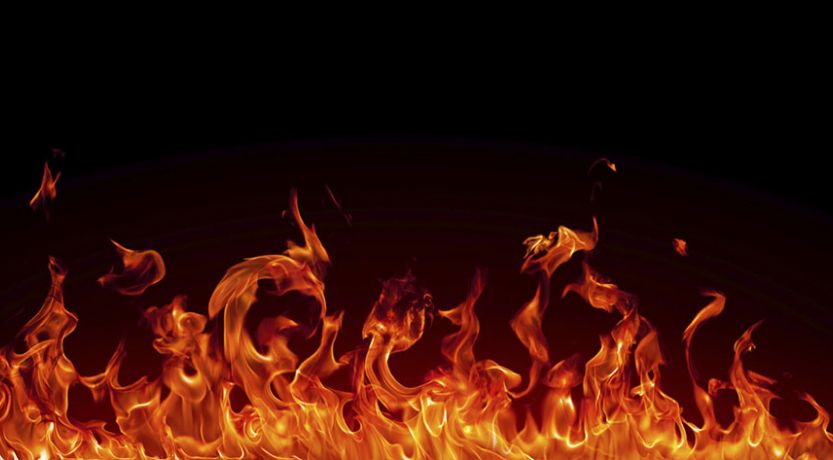“And the smoke of their torment ascends forever and ever; and they have no rest day or night” (Revelation 14:11). Is torment the eternal destiny of the wicked?

Many people today cannot believe that a loving God would torture human beings with literally never-ending suffering and pain. Yet other people strongly believe that the ultimate fate of the unrepentant wicked is to suffer for all eternity in an ever-burning hellfire.
This second group claims support for their understanding in Revelation 14:11, which reads, “And the smoke of their torment ascends forever and ever; and they have no rest day or night, who worship the beast and his image, and whoever receives the mark of his name.”
But does Revelation 14:11 support an ever-burning fire that God will use to torment sinners forever? How should we understand this scripture? Is hell real and do the wicked really burn forever in hell?
Is our merciful God truly going to torment people forever because they refuse to submit to His instructions? That does not seem like the merciful God of the Bible. Yet the Bible does speak of punishment for those who refuse to repent of their sins. What kind of punishment does God have planned for them?
Consider the context of hell in the Bible
A basic rule of Bible study is to allow the Bible to interpret itself. A scripture should be viewed in its immediate context, as well as the broader context of what the rest of the Bible says on the same topic.
Notice that Revelation 14:8 gives the time setting of this passage, showing it concerns the impending end-time fall of “Babylon.” Verses 9 and 10 state, “If anyone worships the beast and his image, and receives his mark … he shall be tormented with fire and brimstone … in the presence of the Lamb” (that is, at Christ’s second coming).
(To learn about the two beasts prophesied in Revelation, see “Who Is the Beast?” “666: The Number of the Beast,” “Mark of the Beast” and “What Is Babylon?”)
These are not people who have died and been sent to eternal suffering. They are alive and are part of this evil system called “Babylon.” They receive this terrible punishment from Almighty God and will have “no rest day or night” as they fall under God’s wrath. They will either have to seek God’s mercy or be distressed by sulfurous fumes (“the smoke of their torment”) until they perish.
Those who worship the “beast” will be punished
Verses 9 and 10 describe the time when God pours out His punishment upon those who worship the “beast” (the leader of the resurrected Roman Empire) and his image (symbolizing both a religious figure and the religious organization he leads). This event will occur in the presence of the Lamb, which means it will happen at the second coming of Christ.
The apostle Paul was inspired to explain that it is impossible for physical human beings to live on into the Kingdom of God: “Now this I say, brethren, that flesh and blood cannot inherit the kingdom of God; nor does corruption inherit incorruption” (1 Corinthians 15:50). The Kingdom of God is spiritual, permanent, whereas human beings are temporary.
When Jesus returns, the beast and false prophet will be cast into the lake of fire (Revelation 19:19-20). Revelation 14:11 does not say they burn for all eternity; it says the smoke of their torment ascends “forever.” Smoke keeps going up as long as a fire is burning. The Greek word translated “forever” means a space of time or an age (New American Standard Exhaustive Concordance). It is best interpreted as meaning that the fire will continue burning as long as the conditions are in place. For example, the fire that destroyed Sodom and Gomorrah is called “the vengeance of eternal fire” (Jude 1:7), but that fire is no longer burning. This passage does not say these individuals are being tormented forever in an ever-burning hell.
Will the wicked burn in hell forever?
The Bible plainly teaches that being made of flesh and blood means that humans are mortal, made of decomposing substance. Unless supernaturally changed, the human body is “corruptible,” according to 1 Corinthians 15.
The apostle Paul was inspired to explain that it is impossible for physical human beings to live on into the Kingdom of God: “Now this I say, brethren, that flesh and blood cannot inherit the kingdom of God; nor does corruption inherit incorruption” (1 Corinthians 15:50). The Kingdom of God is spiritual, permanent, whereas human beings are temporary. We are subject to aging, disease and injury. Flesh and blood will always perish.
The lifespan of a human being is limited. The lifespan of someone who inherits the Kingdom of God is unlimited.
Paul went on to explain: “For this corruptible [every human being] must put on incorruption, and this mortal [every human being] must put on immortality. So when this corruptible has put on incorruption, and this mortal has put on immortality, then shall be brought to pass the saying that is written: ‘Death is swallowed up in victory’” (1 Corinthians 15:53-54). Clearly, if this change does not take place, a human will perish or cease to exist.
The final fate of the wicked will be to be completely burned up in the lake of fire at the end of the ages. Their fleshly bodies will be turned to ashes. Malachi 4:3 says that in the end the ashes of the wicked will be under the feet of the righteous. Psalm 37:20 says, “But the wicked shall perish; and the enemies of the LORD, like the splendor of the meadows, shall vanish. Into smoke they shall vanish away.” Nothing will remain of them except smoke and ashes.
Revelation 20:6 and 14 speak of a “second death.” Everyone will die once (Hebrews 9:27), and everyone who dies will be resurrected (John 5:28-29). But the second death is the ultimate fate of the unrepentant wicked—to be destroyed and to die that death from which there is never to be a resurrection.
No, our loving God is not planning to torture wicked human beings forever in hellfire. On the contrary, God “desires all men to be saved” (1 Timothy 2:4). Out of the billions who have ever lived, those who will not repent and who reject God’s plan of salvation will simply perish—cease to exist—rather than be endlessly tormented.
What is hell?
Probably many of our readers will have their previous assumptions challenged by this information, for they have heard that an ever-burning hellfire torments the wicked unendingly. Yet, as you have now seen, the Bible says something completely different. You might be asking, didn’t Jesus and others speak of hell? Yes, they did! What do these scriptures mean? See the article “What Is Hell?” for the surprising answers or get a full scope of what the Bible says about Life after death by visiting this page.





